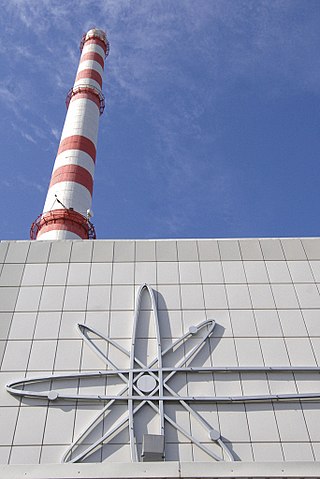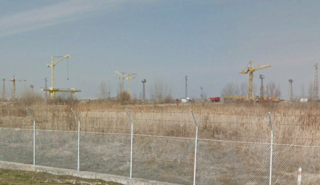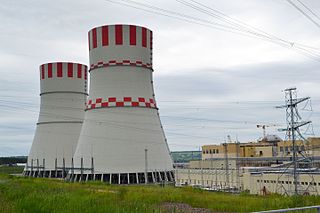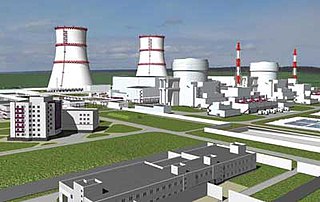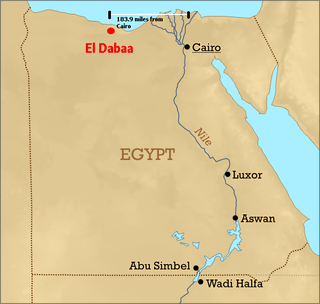| 1955 | Establishment of the Atomic Energy committee |
| 1957 | Establishment of the Atomic Energy Authority |
| 1957 | Egypt is a founding of the International Atomic Energy Agency (IAEA), and in laying the foundation upon which the IAEA mandate is established as well as supporting the peaceful uses of nuclear energy. |
| 1958 | Establishment of the first research nuclear reactor, under the name of Experimental Research and Training Reactor (ETRR-1), which was supplied by the Soviet Union; and inaugurated in Anshas in 1958. |
| 1963 | Establishment of the Nuclear Engineering Department at Alexandria University |
| 1964 | Launching an international tender for the construction of a nuclear power plant with a capacity of 15 MW for electricity generation and seawater desalination in Sidi Kerir. |
| 1966 | Issuance of a letter of intent to the first bidder. |
| 1967 | The war of June 1967 and suspension of the project. |
| 1974 | Launching a restricted tender among American companies to construct a nuclear power plant with a capacity of 600 MW in Sidi Kerir. |
| 1976 | Establishment of the NPPA. |
| 1976 | Establishment of the Supreme Council of Energy. |
| 1977 | Establishment of the Nuclear Materials Authority. |
| 1978 | Suspension of the project due to the accident of the Three Mile Island reactor in the USA. |
| 1980 | Selection of the El-Dabaa site for the construction of the Egyptian NPP. |
| 1981 | Ratification of the Nuclear Non-Proliferation Treaty by the Arab Republic of Egypt. |
| 1981 | Issuance of the presidential decree allocating the El-Dabaa site for the establishment of the NPP project. |
| 1981 | The Supreme Council of Energy approves the Egyptian nuclear program. |
| 1981 | Establishing a fund to support alternative energy projects. |
| 1983 | Invitation to an international tender for the construction of a NPP with a capacity of 1000 MW. |
| 1986 | Suspension of the project following the Chernobyl accident in Ukraine. |
| 1998 | Operation of the second Egyptian experimental reactor with a capacity of 22 MW at Anshas. |
| 2006 | Initiating a national dialogue to study the use of nuclear power in electricity generation. |
| 2006 | Restructuring the Supreme Council of Energy chaired by the Prime Minister. |
| 2007 | Announcing Egypt's strategic decision to build a number of reactors for electricity generation. |
| 2007 | Establishment of the Supreme Council for the Peaceful Use of Nuclear Energy headed by the President of the Republic. |
| 2009 | "Worley Parsons" chosen as a consultant for the project. |
| 2010 | Preparing and submitting the documents related to licensing the El-Dabaa site for the construction of the first NPP to ENRRA. |
| 2010 | Promulgation of Law No. 7 of 2010 Regulating Nuclear and Radiological Activities. |
| 2011 | Completion of the technical specifications and tender documents preparation. |
| 2012 | Establishment of the ENRRA, which is affiliated to the Prime Minister and undertakes regulatory and supervisory works for all activities related to the peaceful use of nuclear energy. |
| 2015 | The Arab Republic of Egypt received three technical and financing offers from Russia, China and South Korea. The Russian offer was deemed to be the most suitable offer. On November 19, 2015, an inter-governmental agreement was signed between the Government of the Arab Republic of Egypt, and the Government of the Russian Federation, . |
| 2016/2017 | Negotiations with the Russian party for the construction and operation of a nuclear plant, the supply of fuel and the storage of spent fuel. The NPP consists of four VVER reactor units with a capacity of 1200 MW per unit. |
| December 2016 | The engineering, procurement and construction contract was signed (EPC Contract). |
| 25 February 2017 | On February 25, 2017, as part of the efforts to promote public awareness and acceptance of the El-Dabaa Nuclear Power Plant project, a public ceremony was held as part of the project community dialogue in the presence of. Dr. Mohamed Shaker, Minister of Electricity and Renewable Energy and the Governor of Matrouh, with the participation of El-Dabaa residents and all local stakeholders. |
| December 2017 | The project contracts entered into force and the preparatory stage of the project commenced. |
| March 2019 | Issuance of the El-Dabaa Site Approval Permit (SAP) by ENRRA. |
| November 2019 | The IAEA team of experts completed the Integrated Nuclear Infrastructure Review mission to assist the Arab Republic of Egypt in assessing the status of nuclear infrastructure. |
| 2019 | The Egyptian nuclear project was granted an award upon its recognition as one of the top 3 project launches. |
| 2020 | Commencement of the docking facility for the purpose of delivering the equipment of the El-Dabaa NPP. |
| August 2021 | Commencement of manufacturing of long lead equipment, including the core catcher. |
| September 2021 | Commencement of the training of the Egyptian personnel with respect to the operation and maintenance works. |
| October 2021 | NPPA’s Project Team responsible for oversseing the implementation of the El-Dabaa NPP Project, was granted the Best Team Award and the project was awarded the first place in the Egypt Governmental Excellence Award in its second edition. |
| June 2021 | Obtainment of the construction permit for the first unit of the El-Dabaa NPP. |
| July 2021 | Pouring of the first concrete for the first unit of the El-Dabaa NPP. |
| October 2021 | Obtainment of the construction permit for the second unit of the El-Dabaa NPP. |
| November 2022 | Pouring of the first concrete for the second unit at the El-Dabaa NPP |
| March 2023 | The website of the Nuclear Power Plants Authority is among the best distinguished government websites in the Egypt Government Excellence Competition for the year 2023 |
| May 2023 | Pouring of the first concrete for the third unit at the El-Dabaa NPP |




